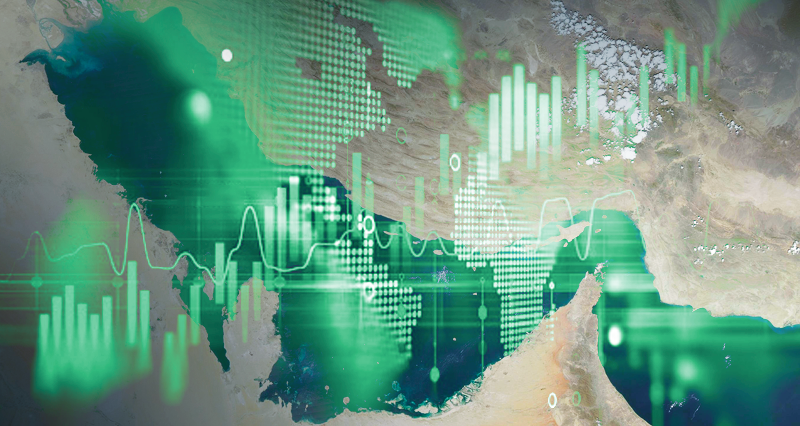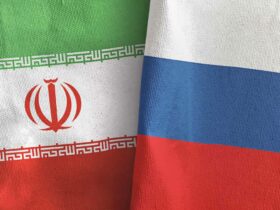Over the past few weeks, the Arabian Gulf has been at the center of global attention with more than one event and more than one issue.
Regardless of the nature of the event or the issue that brought it under the spotlight, this intense media interest in it only says that the Gulf countries have become an important cog in the industry of global events.
Simultaneous major events
Football fans around the world have been interested in the most prominent event, the World Cup 2022, which was held in Qatar – the first Arab and Islamic country to organize this important sports event.
Though, Qatar’s winning the right to organize the tournament remained controversial from its announcement until the opening match, the controversy continued during the tournament on geopolitical and human rights backgrounds, some of which were fabricated and seemed designed to spoil the event.
At the same time, Saudi Arabia hosted 3 summits, in each of which China was the second party: Chinese-Saudi, Chinese-Gulf, and Chinese-Arab summits.
Those summits represented an important stage in the alliances of that important region of the world, which had long contented itself with partnership with Washington.
Observers of this event considered the summits as a beginning of a geopolitical shift within the world’s influence struggles between the United States and China.
A few days ago, a Qatari bribery scandal erupted in the European Parliament. With the expansion of the circle of investigations, the arrest of European legislators, and the suspension of work on the European Union agreements with Doha, the European legislature has lost its moral authority as the guardian of the alleged European values that have long been praised in the face of adversaries, third world countries, or even the countries of the Arab world.
Different methods
According to a source specializing in Gulf affairs, regardless of evaluating these events, they confirm that the Gulf countries are acting independently to protect their issues and interests, even if the method differs among them.
“While Saudi Arabia seeks to exploit its surplus wealth to build influence through political and economic paths and partnerships with major powers, Qatar is trying to build soft power by hosting sporting events, owning media platforms, and influencing decision-making circles”, the source said.
“The difference in methods between the two countries is due to the difference in the economic and geopolitical weight between the two countries. Saudi Arabia’s economy, religious status, geographic size, and population give it surpluses and resources greater than those owned by Qatar”, the source added.
“Although Qatar has huge reserves of natural gas, it alone is not sufficient to build influence. Therefore, it reinvests its returns in various forms to create a soft power that distinguishes it”, the source continued.
Taking the initiative
According to a Saudi source, the Gulf states have given up their reluctance to take their interests into their own hands.
“Each of Saudi Arabia, Qatar and the Emirates wades in a different river according to the capabilities available to each of them. But the goal is the same: to maximize political and economic gains on the global stage”, the source added.
He pointed out that Saudi Arabia was playing prominent roles in Arab, Gulf and Islamic issues during the past decades, but years ago it took the initiative to lead as it was necessary and because of the dangers of vacuum.
The source explained that the three Chinese summits and the messages they send would not have been feasible without a vision supported by real political and economic influence.
“There are large countries in the region besides Saudi Arabia, but they are going through turmoil and instability. There are rich countries besides Saudi Arabia, but they lack the vision and influence of Riyadh”, he added.
Gulf compass
“The classic Arab political capitals have lost their roles, such as Cairo, Damascus and Baghdad, due to the political turmoil and economic collapse they are going through”, an Egyptian source said.
“These capitals were retreating even before the Arab Spring revolutions. However, those revolutions tempted decision-makers in the Gulf to act in the interests of their countries. The compass of Arab decision-making has now become a Gulf one”, he added.
He pointed out that the ancient capitals used to make the Arab-Israeli conflict a central issue, but this issue has now receded in favor of confrontation with Iran.
“One of the reasons for the Gulf boycott of Qatar was to curtail the graceful Qatari style of making influence, because it was inconsistent with the classic Saudi style resulting from real capabilities”, he explained.
The source pointed out that Qatar was playing its roles without regard to the danger of Iran or the political Islam, while Riyadh sees otherwise.
“I believe that the reconciliation that took place between the two parties more than two years ago allowed the Gulf region to reshape its collective policy in a way that guarantees it leadership in the Arab world, and in a way that does not deprive member states of the right to a flexible policy that meets their individual interests”, the source continued.
An economic and political force
Reconciliation with Qatar took place without making announced concessions from Doha, but it seems that the arrangements were made with the aim of holding the World Cup tournament, which would not have been held while it was under siege. Everyone seemed to take a step back in the feud, and each had his own reason.
The recent disclosure of Qatar’s attempts to influence European legislators is evidence that Doha is still exercising its influence at the international level through much less obvious methods that succeed at times and fail at others.
Doha has accumulated influence for itself over the past years through the fields of media, public relations and international mediation, as in Afghanistan and the liberation of Western hostages, as well as paying bribes sometimes to obtain what is difficult for it to get.
You may find those who disagree about goals and methods, but the Arab Gulf states will represent a real economic and political force in the coming years. This force will not be afraid to act as an equal in dealing with Western powers or major international players, because the gas and oil resources of the Gulf play a decisive role in energy prices and will be an important card that these countries play in dealing with everyone.
I believe that Saudi Arabia’s turn to China and Qatar’s involvement in bribing members of the European Parliament will be priceless in light of the energy crisis that the world, especially Europe, is experiencing.
According to the Saudi source, the Gulf countries have grown old and do not need someone to determine for them what is right and what is not.
“The Gulf countries have natural and human resources and capabilities, and dreams, which makes them an important player in the calculations of global politics and economics”, he added.

















Leave a Reply